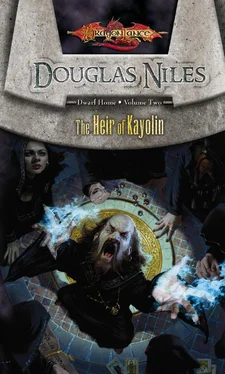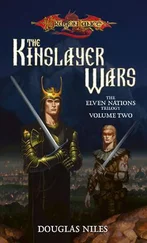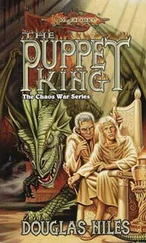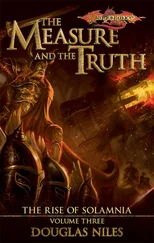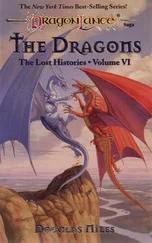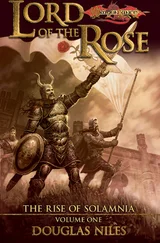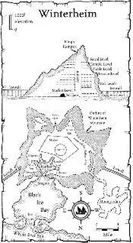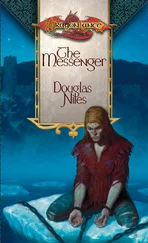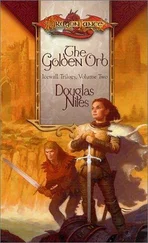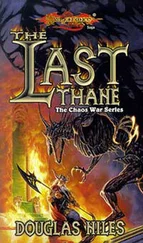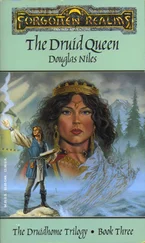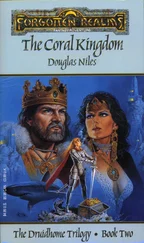Douglas Niles - The Heir of Kayolin
Здесь есть возможность читать онлайн «Douglas Niles - The Heir of Kayolin» весь текст электронной книги совершенно бесплатно (целиком полную версию без сокращений). В некоторых случаях можно слушать аудио, скачать через торрент в формате fb2 и присутствует краткое содержание. Год выпуска: 2012, ISBN: 2012, Издательство: Random House Inc Clients, Жанр: Фэнтези, на английском языке. Описание произведения, (предисловие) а так же отзывы посетителей доступны на портале библиотеки ЛибКат.
- Название:The Heir of Kayolin
- Автор:
- Издательство:Random House Inc Clients
- Жанр:
- Год:2012
- ISBN:9780786962686
- Рейтинг книги:5 / 5. Голосов: 1
-
Избранное:Добавить в избранное
- Отзывы:
-
Ваша оценка:
- 100
- 1
- 2
- 3
- 4
- 5
The Heir of Kayolin: краткое содержание, описание и аннотация
Предлагаем к чтению аннотацию, описание, краткое содержание или предисловие (зависит от того, что написал сам автор книги «The Heir of Kayolin»). Если вы не нашли необходимую информацию о книге — напишите в комментариях, мы постараемся отыскать её.
The Heir of Kayolin — читать онлайн бесплатно полную книгу (весь текст) целиком
Ниже представлен текст книги, разбитый по страницам. Система сохранения места последней прочитанной страницы, позволяет с удобством читать онлайн бесплатно книгу «The Heir of Kayolin», без необходимости каждый раз заново искать на чём Вы остановились. Поставьте закладку, и сможете в любой момент перейти на страницу, на которой закончили чтение.
Интервал:
Закладка:
Only when the troops were well organized, moving smoothly into position, did the wizard summon his general with a curt gesture.
“Yes, my master?” asked Darkstone, hurrying to kneel before the magic-user.
“Have your men bring me the hearts of two slain enemies. They must be warm and freshly bleeding. Then proceed with your attack.”
“Yes, my lord,” promised the general. He quickly dispatched a pair of aides to perform the task before returning to his regiment on the square. Less than a minute later, the aides returned with the grisly trophies.
Willim dismissed the dwarves but clasped the two hearts, one in each hand. Closing his eyes, he squeezed the organs, silently casting his powerful spell of summoning. Blood dripped from his fingers, but it was consumed by magic before it could strike the ground.
Soon the wizard felt the embrace of black wings and noted the looming presence of his minion, an even blacker shade against the darkness of the sunless world. The monster rose before him, maw gaping, eyes flaring with crimson hunger.
“Go!” commanded Willim the Black. “Strike at the very bottom of the city! Spread terror there, and bring that fear back to me!”
With no sound, the minion bowed, flapping its huge bat wings and flexing its sharp, hooked claws. The magic user could sense its pleasure at the command, and Willim watched, breathing hard from the exertion of the summoning-and from his own excitement-as the minion sank through the stone floor of the city.
He knew that it understood the command, and that it would obey.
The streets of Anvil’s Echo, the lowest levels of Norbardin, were crowded with the wretched and the poor. Narrow passages twisted between looming, sediment-stained walls, as water-and less identifiable liquids-sluiced through gutters. Dark, shadowy holes lined the walls, in most cases without any doors. A stink of rot and effluence pervaded the air in those close confines, but thousands of residents bustled their way around the “Echo” with no apparent difficulty.
For they were-except for the all-but-exterminated gully dwarves-the lowest of Thorbardin’s low. They scraped and scrimped, working as coal-haulers and boiler-scrapers, street-sweepers and debris-rakers, earning but a few miserable coppers a day if they were lucky. They dwelled, often two or three families at a time, in tiny, cramped, poorly ventilated hovels that were little more than caves.
But there were advantages to being so far away from the attentions of the powerful. For one thing, the king’s enforcers didn’t spend much time among the miserable poor of Anvil’s Echo. Perhaps it was because there was so little wealth to be mined from those hapless folk. Or maybe the rich and powerful avoided the shadowy, sewage-stinking alleys because of the miasma that seeped through the air. No doubt, at least part of the guard’s aversion to the Echo was the fact that more than one of the bearded fanatics who so readily enforced the regime’s repressive policies had been found with his throat slit, lying in one of those back alleys. Invariably, by the time the body was discovered by another party of guards, the slain enforcer’s belongings, including weapons, boots, and clothing, had all been claimed by one or another of the thieving dwellers of that most miserable of Norbardin’s neighborhoods.
There, unlike the rest of the great city, some female dwarves dared to challenge the monarch’s repressive rules. The bold dwarf maids, though few in number, operated their own stalls and stores, always in darkened alcoves off the main roads of Anvil’s Echo. On those streets, some of the women of Norbardin went about uncloaked, faces bare in proud defiance of the king’s harsh decrees. They walked without escort, talked loudly, even dared to argue with those males who were foolish enough to challenge them. In fact, Anvil’s Echo, though filthy and poverty stricken, was closer in nature to the dwarf cities of the past than were any of Norbardin’s higher and more prosperous neighborhoods.
And there, as elsewhere in the city, the population was purely dwarf, so the inhabitants worked hard, drank even harder, and took their frustrations out upon each other. Brawling and thuggery were common in Anvil’s Echo, and the strong routinely lorded it over the weak. Rough overseers, sometimes wielding whips or cudgels, held their laborers to their looms or forges or stitching, while those suffering workers cowered and cringed and sought to earn a few lousy coppers for a hard day’s work.
The outbreak of civil war, as Willim’s rebel forces swarmed over the three main gates leading into Norbardin, was barely noticed there in the deepest depths of the city. The sound of the violence was a distant distraction, and the dwellers of Anvil’s Echo had little care for who won or lost. One thing was for sure: whichever side prevailed, their miserable lot and their endless work would go on.
But all that labor came to a halt, along both sides of one narrow street, when the stones of the pavement began to shift and shimmer, as though a puddle of black oil leaked up from below. Passersby gasped and sprang away from the fast-growing murk, their cries of alarm bringing people out of the shops and down from both ends of the long roadway. Dwarves gathered in a circle, whispering and muttering then edging backward as the darkness coalesced into something very solid. Like a pillar of shifting black smoke, it rose from the ground, climbing and writhing until it was taller than any dwarf.
And it continued to grow and climb and writhe.
“What is it?” called one foreman, pushing his way through the throng.
“It ain’t natural, that’s for sure,” one old fellow retorted, taking another step backward.
“It’s some kind of creature!” warned a dwarf maid, an edge of hysteria to her voice.
“Ah, calm yerself,” barked the foreman. He took another step forward but, despite his bravado, couldn’t bring himself to draw any closer to the black form.
That black shape of murk loomed high above the damp rock of the Echo’s nearby main thoroughfare, and even the largest and most brash of the bullies quailed.
The minion of Willim the Black was a bat-winged monster, with embers like Abyssal fires for eyes. Those fiery coals glowed with an infernal light.
The circle of dwarves widened and edged back.
Finally, when the creature spread its black wings and uttered an otherworldly roar, panic seized the crowd of dwarves. They turned as one and started to run, tripping and falling over each other. The weak and the slow screamed and fell as the stronger and faster elbowed them out of the way. The minion struck, stomping among the fleeing dwarves, slaying randomly right and left with slashing blows of its taloned hands. Terrified dwarves fled both ways along the narrow street, crying out in terror, spilling onto the main thoroughfare and gathering more and more of the population into their flight.
And the panic spread, and the people screamed, fleeing.
Peat Guilder could hear the commotion of war from the front room of his shop. The clash of steel against steel, the shouts of battle cries, the wailing and screaming of the grievously wounded-they echoed down the street from the great plaza. Even with the front door closed tight, he couldn’t drown out the din. Every once in a while, he felt certain that the fighting was getting closer to the shop, but then it would recede again.
Sadie was in the back room, still laboring over the tricky scribing of the mysterious scroll she had been working on. A few hours earlier, Peat had asked her how the work was coming, and she’d just about bitten his head off. No fool, he had left her alone since then. Finally he couldn’t take it anymore and went to the door to the back room.
“What are you working on there, anyway?” he demanded.
Читать дальшеИнтервал:
Закладка:
Похожие книги на «The Heir of Kayolin»
Представляем Вашему вниманию похожие книги на «The Heir of Kayolin» списком для выбора. Мы отобрали схожую по названию и смыслу литературу в надежде предоставить читателям больше вариантов отыскать новые, интересные, ещё непрочитанные произведения.
Обсуждение, отзывы о книге «The Heir of Kayolin» и просто собственные мнения читателей. Оставьте ваши комментарии, напишите, что Вы думаете о произведении, его смысле или главных героях. Укажите что конкретно понравилось, а что нет, и почему Вы так считаете.
